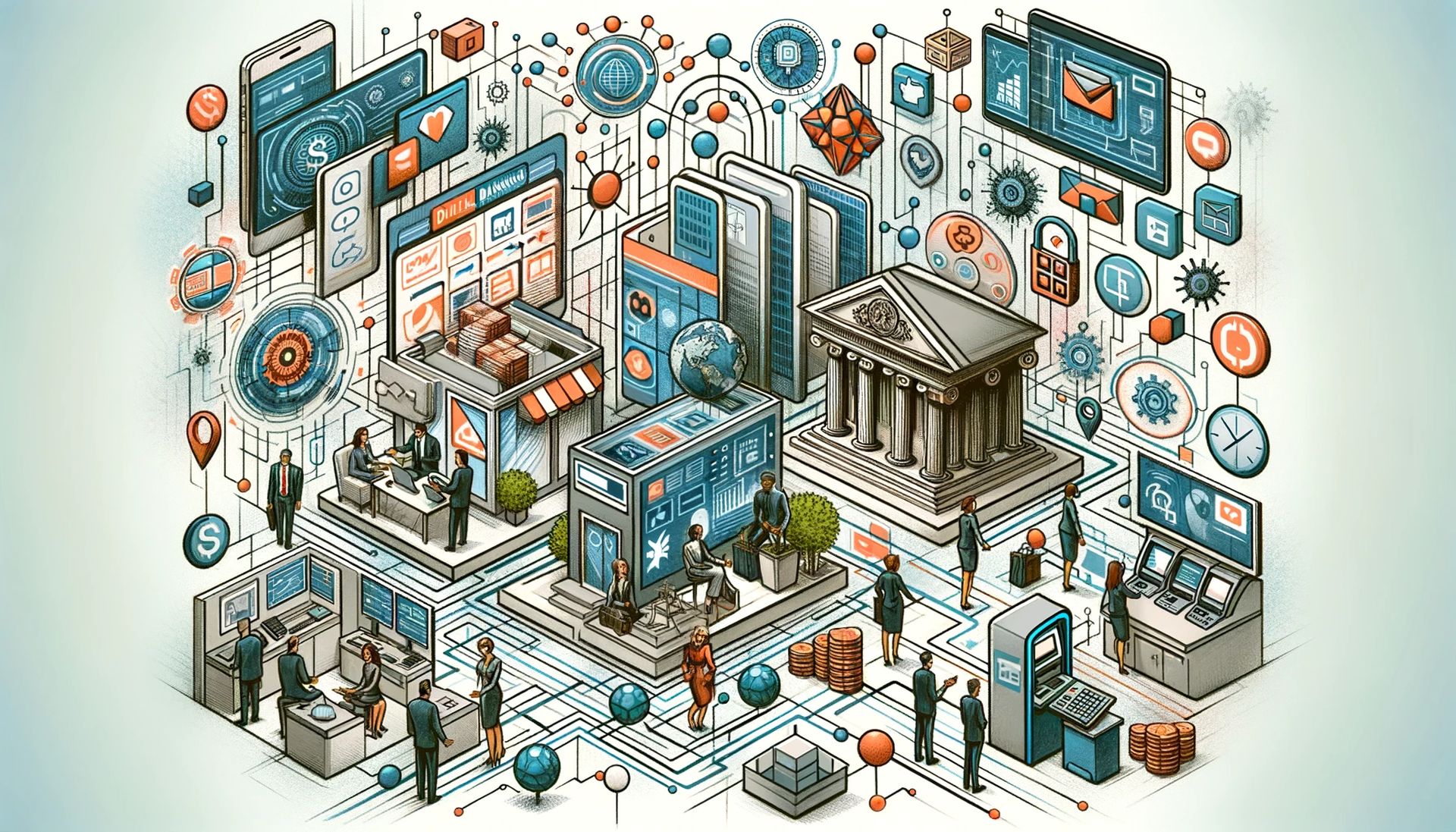Why the banking industry should embrace CRM for best outcomes
Today's banking world is evolving unprecedentedly, with a strong focus on enhancing customer relationships. This shift towards Customer Relationship Management (CRM) is becoming a pivotal factor in banks' growth and enduring success worldwide

20 Kas 2023
3 dk okuma süresi
Today's banking world is evolving unprecedentedly, with a strong focus on enhancing customer relationships. This shift towards Customer Relationship Management (CRM) is becoming a pivotal factor in banks' growth and enduring success worldwide. Amidst fierce competition and rapid technological progress, CRM emerges as a key element in establishing trust, ensuring customer loyalty, and driving profitability.
Customer Relationship Management transcends being just a popular buzzword; it is a fundamental framework for creating and maintaining valuable customer interactions. A commitment to continuous learning and skill development is crucial for banks to excel in this area. By investing in educating their employees on CRM's intricacies, banks are strategically placing themselves ahead in a complex and ever-changing financial landscape. Such a commitment improves customer experiences and cements the bank's position as a leader in customer-centric service.
Contemporary banking trends
Modern banking has transformed into an intricate web of digital and physical channels, each playing a vital role in shaping customer experiences. This evolution has turned banking into a multifaceted journey, where customers engage with their financial institutions through various platforms like mobile applications, websites, ATMs, kiosks, and social media. In such a complex landscape, maintaining a uniform and superior customer experience across every channel becomes a pivotal challenge for banks.

The bar for customer expectations is set high. Today's customers seek tailored services that cater specifically to their needs, along with rapid resolution of issues and a frictionless banking journey. The price for not meeting these demands is steep, often leading to the loss of customers and a negative impact on the bank's reputation.
Banks that successfully navigate these multifaceted interactions, consistently delivering on customer expectations, will find themselves at the forefront of the modern banking revolution.
Banking and CRM integration
Customer Relationship Management plays a vital role in the contemporary banking sector. It transcends the traditional concept of mere customer management, venturing into the realm of fostering enduring relationships. At its core, CRM is about gathering and analyzing customer data to understand their needs, preferences, and behaviors deeply. This knowledge empowers banks to customize their offerings, predict customer requirements, and proactively tackle potential issues.

Elevate client support
CRM systems are instrumental in elevating the level of customer service. By centralizing customer information, these systems provide a comprehensive view of a customer's history to service representatives. This integration results in faster and more effective resolution of issues, enhancing the overall customer experience.
Enhance sales opportunities
Understanding customer behavior through CRM enables banks to suggest products and services that genuinely align with individual customer needs. This approach meets customer expectations and opens new avenues for cross-selling and upselling, thereby boosting revenue streams.
Grow customer base
A bank that effectively anticipates and fulfills customer needs is more likely to cultivate loyalty. Retaining customers is crucial, as they provide a steady source of revenue and act as ambassadors for the brand.
Refine marketing tactics
CRM aids in the optimization of marketing strategies. Banks can craft targeted marketing campaigns by segmenting customers based on demographics, behavior, or preferences. This tailored approach ensures a more efficient use of resources and a higher return on investment in marketing activities.

Optimize business decisions
The wealth of customer data harvested through CRM systems offers invaluable insights for strategic planning. Banks can leverage this data to spot emerging trends, evaluate the performance of various products, and allocate resources more effectively, paving the way for informed decision-making and strategic growth.
CRM transforms CX in banking
Understanding the significance of CRM is essential for achieving optimal outcomes. CRM equips banks with the capability to deeply understand and cater to their customers' needs, fostering a personalized and engaging experience.
This approach is crucial in an environment where customer satisfaction is the cornerstone of success.
With CRM, banks can enhance customer loyalty, drive growth, and maintain a competitive edge. The effectiveness of CRM in transforming customer interactions into valuable relationships makes it a critical tool for any bank looking to thrive in the upcoming years.

Why should the banking industry embrace CRM for the best outcomes? Because CRM;
- Enhances the ability to provide personalized and efficient services tailored to individual customer needs, significantly improving the customer experience.
- Fosters deeper, more meaningful customer relationships, bolstering loyalty and encouraging long-term engagement.
- Unlocks new revenue streams through informed cross-selling and upselling, leveraging a better understanding of customer preferences.
- Streamlines banking processes, increasing operational efficiency, responsiveness, and cost-effectiveness.
- Offers valuable insights from customer data, which are essential for informed strategic planning and making better decisions.
- Encourages satisfied customers to become brand advocates, effectively expanding the bank's market reach and reputation.
- Equips banks to quickly adapt to changing customer expectations and evolving technological landscapes, keeping them competitive.
İlgili Postlar
Technical Support
444 5 INV
444 5 468
info@innova.com.tr









